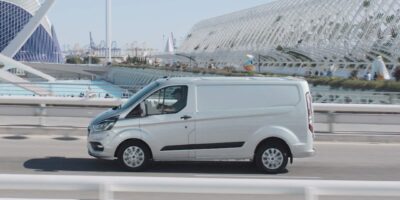Car owners are underpaying for their on-street residential parking space across London, according to a new report by think tank Centre for London. The report calls on councils to act more strategically with parking controls, promote alternatives to car ownership and use, and reallocate parking space to other uses that Londoners prioritise such as cycleways, disabled bays and green space.
The report, Reclaim the kerb: The future of parking and kerbside management in London, found that the annual cost of operating residential parking spaces far outstrips the price that drivers pay for residential permits, with even the most expensive permits falling short. On average it costs councils £336 to operate a parking space in inner London (compared to average resident permit costs across councils between £51-£230), and £295 in outer London (compared to average permit costs between £29-£154). Instead pay and display, and enforcement charges, subsidise lost revenue from resident permits.
The market value of a residential parking space can be up to 10 times higher than the annual cost of a permit to park on-street. Centre for London analysis of JustPark data found that spaces were being rented out at a yearly average of £2,740 in inner London, and £1,587 in outer London.
The report also found that boroughs’ reported parking expenditure does not reflect the full cost of parking provision. Between 2014/15 and 2018/19, London boroughs collectively made an average annual parking surplus of £243 million, but when other costs required to operate Controlled Parking Zones such as road maintenance and back office staff are taken into account, this surplus diminishes significantly and even becomes a loss for four London boroughs. Any surplus is ringfenced by government for transport services, including road maintenance and provisions for disadvantaged groups.
The under-pricing of residential parking can also incentivise car ownership and use, when travelling on foot, by bike or public transport could be a viable alternative. Just over half of Londoners (56 per cent of households) own a car and this rate has fallen by only four per cent in the last 10 years. Meanwhile the proportion of trips made by public transport, walking or cycling in the city remained static over the last three years.
With more than half of London councils having declared a climate emergency and road transport contributing over 20 per cent of the city’s emissions, the report argues that the time has come to rethink parking policies and support the shift towards sustainable modes of transport. It calls on councils to take a more strategic approach to parking controls and promote alternatives to car ownership and use.
It recommends that councils should:
Set residential permit charges at a level that fully covers operating costs;
Review the coverage, size and operating hours of Controlled Parking Zones regularly;
Move towards an emission-based charging structure for resident permits, and escalate charges for additional vehicles.
While some boroughs might be concerned about local opposition to these changes, according to new polling commissioned for the report, Londoners overall see trees and green spaces, pavements free of clutter and children’s play space as a higher priority than on-street car parking for residents and visitors.
The report therefore recommends that councils should develop kerbside strategies that allocate road and kerb space to high-priority uses such as cycleways, electric vehicle charging, disabled bays and green space, and reallocate road space gradually through introducing a cap on the number of permits issued, and using waiting lists or limited eligibility for new residents.
The opportunity to repurpose London’s kerbsides and transform them into valuable public space is huge: 43 per cent of the city’s cars are parked on-street, taking up space equivalent to 10 Hyde Parks. This space should be used for the alternatives that Londoners value.
Joe Wills, Senior Researcher at Centre for London said:
“Residential parking in the capital is under-priced, while Londoners prioritise green spaces and clutter-free pavements over on-street parking.
“With a climate emergency on our hands, councils can play an important role in encouraging the shift from car use towards walking, cycling and public transport – and many are already doing good work here.
“There will continue to be a place for private cars in the short and medium term, but what we need now is action. The time is right to rethink the way councils approach parking and reclaim the kerb, accelerating London towards the greener, safer, healthier city that will benefit us all.â€
Cllr Jon Burke, Hackney Council Cabinet Member for Energy, Waste, Transport and Public Realm, said:
“In Hackney, we’re working to radically reassign road space away from cars – by filtering roads, introducing parklets and dockless bike parking instead of bays, delivering emissions-based controlled parking, and through our pioneering vision for 21st Century Streets, with substantial green space displacing car parking, tree cover for a minimum of 40 per cent of the street, new secure and dockless bike storage, and discreet electric vehicle charge points.
“We welcome this report calling for more councils to follow Hackney’s lead in prioritising pedestrians, cyclists, and public transport users over cars. Land transport is the UK’s largest and growing source of planet heating emissions, with the largest proportion coming from private cars. That’s why Hackney Council is working to ensure that the future of our borough is built around the principles of fewer, cleaner, smaller, and slower motor vehicles on our roads.â€
Cllr Clyde Loakes, Deputy Leader and Cabinet Member for the Environment, London Borough of Waltham Forest said:
“We are proud to be leading the way in helping people reclaim their streets and neighbourhoods from the motor car. When we create areas where neighbours can chat whilst their children play, where plants, trees, and wildlife can flourish, and where space is provided for people to walk and cycle safely, we see stronger, healthier communities thrive.
“We are helping families reclaim streets through our emerging School Streets and Play Streets programmes alongside increasing numbers of Street Party events, where roads are shut to cars for residents to enjoy and better utilise that valuable community space and get to know each other better. We have introduced our award-winning road improvement programme, Enjoy Waltham Forest, which has seen top-quality cycling and walking infrastructure created right across the borough, with more yet to come, recreating a network of residential neighbourhoods where the needs of people are put first rather than a single mode of transport, opening up new sustainable transport options to thousands and reducing the daily blight and impact of ‘rat running‘ through hundreds of residential streets.
“Each year, over 9,000 Londoners die because of poor air quality. By tackling unnecessary car use we are taking meaningful steps toward reducing that shocking figure and creating a better quality of life for everyone. This Centre for London report is yet more evidence that shows why these actions are so important.â€
Cllr Hanif Khan, Cabinet Member for Transport at Hounslow Council said:
“In Hounslow road transport is responsible for around one third of our carbon emissions and we are taking definitive action to change that through a combination of measures outlined in our draft Climate Emergency Action Plan. We already offer free resident parking permits for the lowest emission vehicles alongside an additional levy on polluting diesel vehicles. We have also recently consulted on an emissions-based element to our on- and off-street pay & display charges. We have an ambitious programme of Electric Vehicle Charge Point installation and were proud to see it reported last year that we have the second highest number of charging opportunities in London.
“We are the first borough in London to formally consult on a workplace parking levy. The proposed zone at the western end of the Golden Mile in Brentford will generate funding towards paying for public transport improvements including a new rail link up to Southall which will bring the benefits of the Elizabeth Line into the borough. A full business case is currently being developed and the levy could go live next year.â€
Ben Boutcher-West, Head of Mobility, AppyWay said:
“This consortium and the resulting report highlights the land value attached to parking, its current utilisation, and the complex approach to parking and kerbside management employed across all 33 boroughs.
“Of note in the report is the very static way in which Traffic Management Orders are managed with a bay allocated to a single purpose. To succeed with mobility, to deliver social and environmental good, and to unlock additional value from a cities assets, the report suggests a fresh look at parking is required with local authorities considering a percentage of dynamic bays.
“AppyWay believe that a binary road pricing model to combat congestion will be hard to scale and enforce. Parking is a well-known, widely accepted system, and by innovating within the existing model to create a positive customer experience, the system can be reinvented to support the modern demands of both cities, residents and mobility operators.”
Julian O’Kelly, Head of Technology, Innovation and Research at the British Parking Association welcomed the report and said:
“There is an urgent need to transform the way we travel and the energy we use. The BPA is at the forefront of research and technological innovation, working collaboratively with our partners and stakeholders, determined to help create a cleaner, safer and less congested world where everyone can move around freely and easily.
“We encourage the wider adoption and smarter use of technology to manage the kerbside more effectively and we want to ensure that our members have the tools they need to work with communities and deliver solutions.â€
*Article Source www.centreforlondon.org








